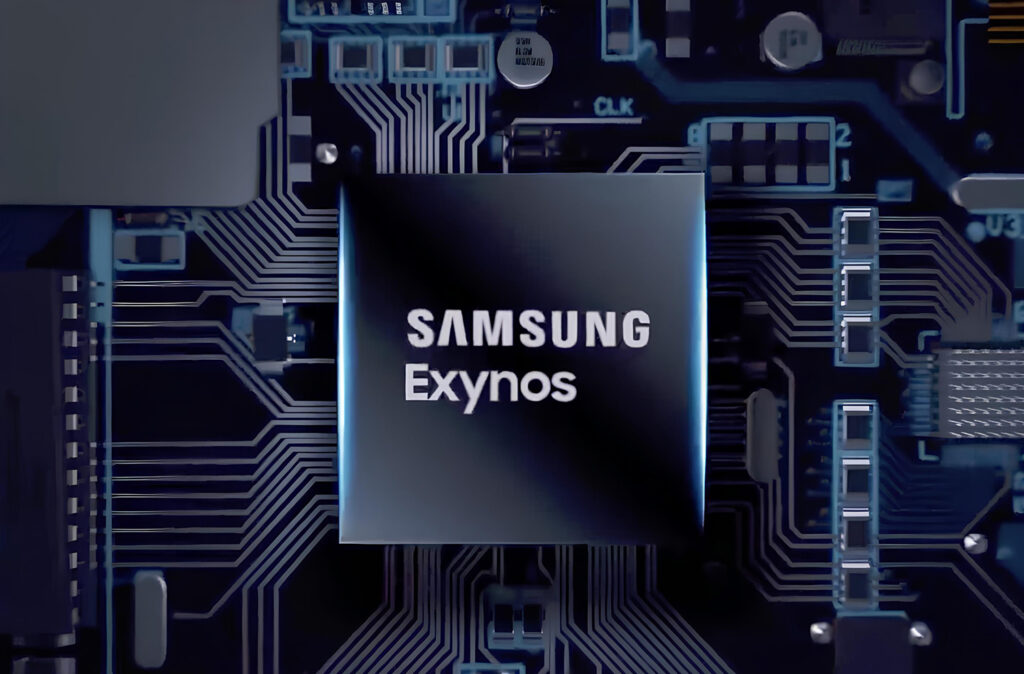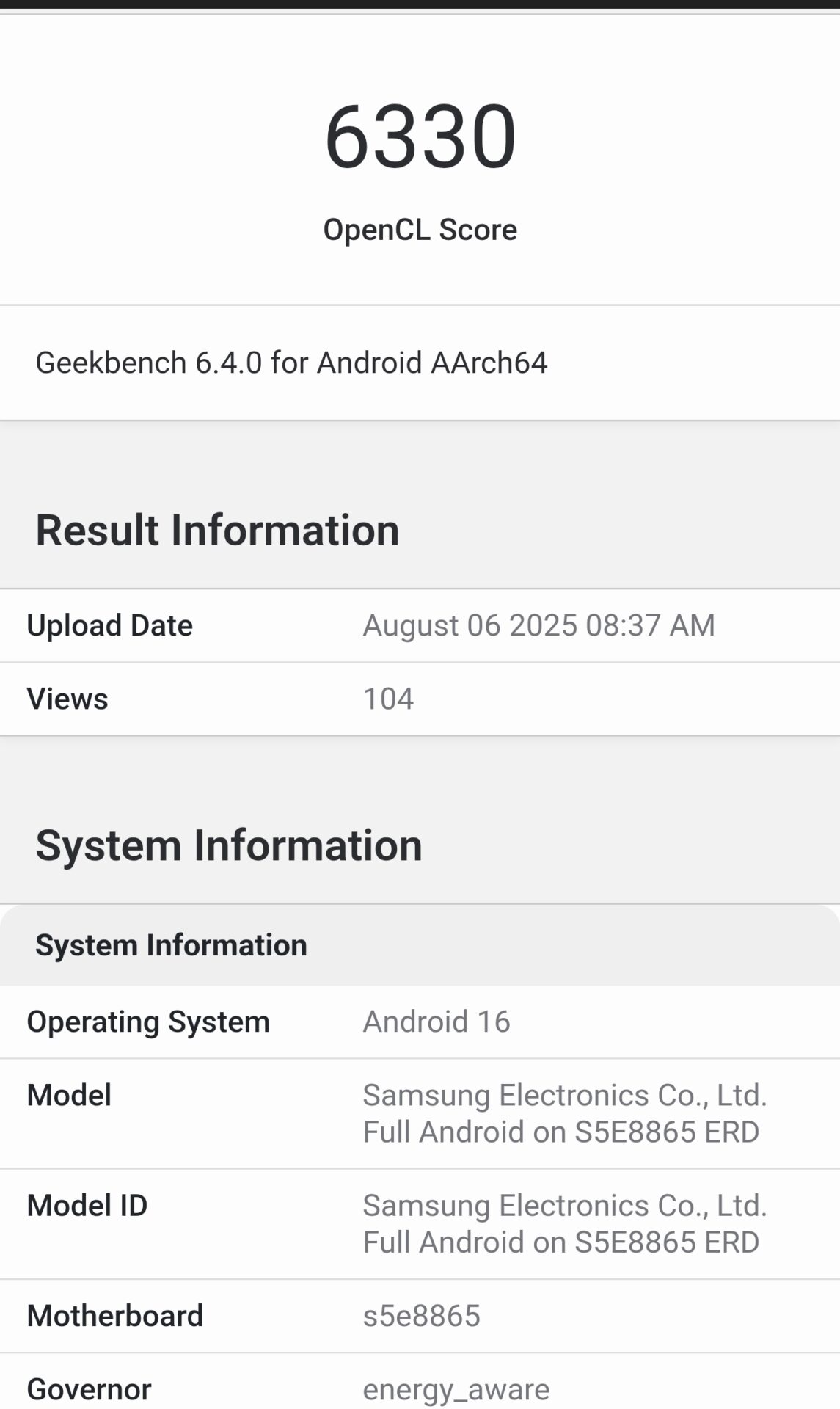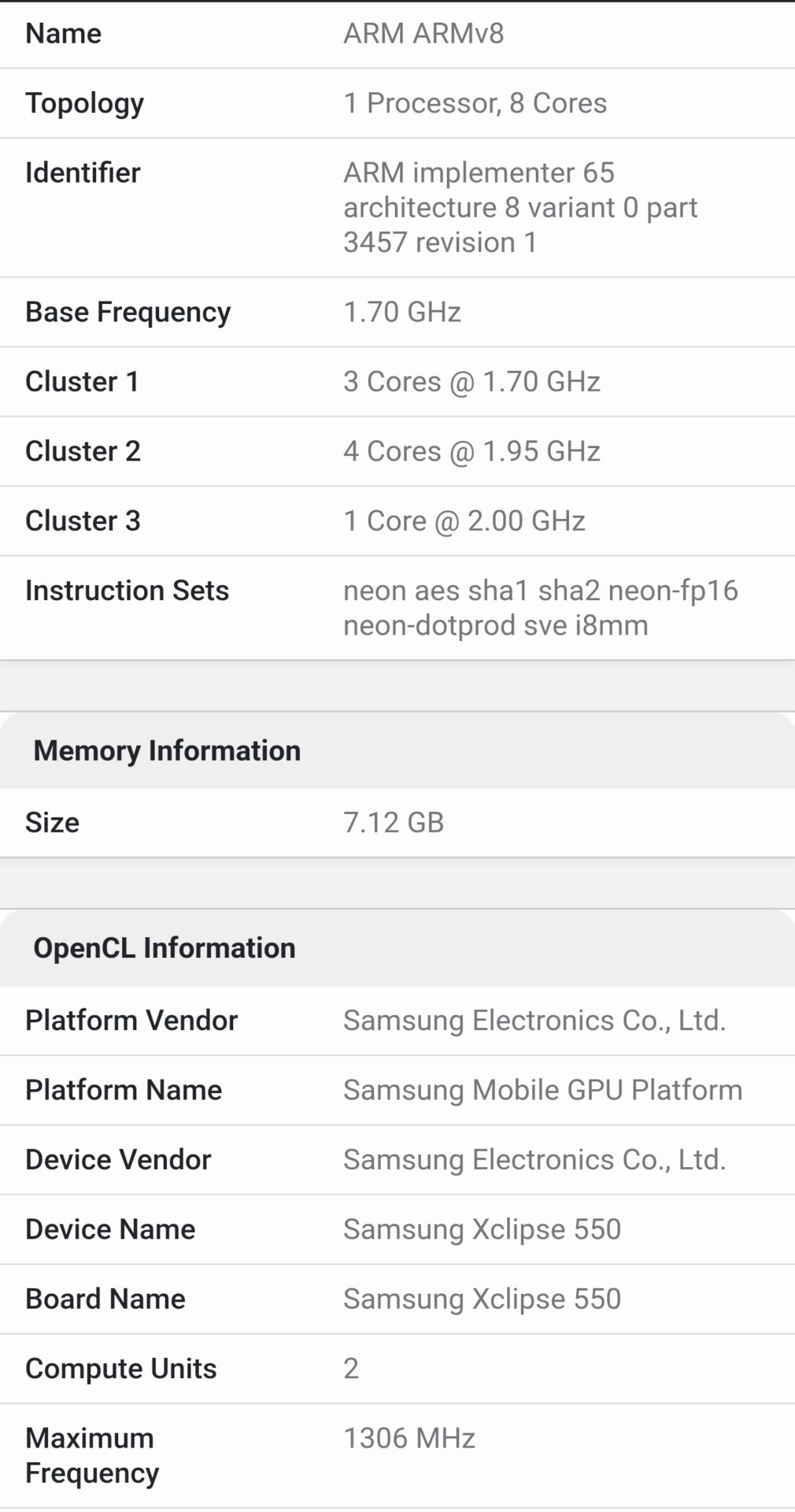Samsung’s latest mid-range chip, the Exynos 1680, has shown up on Geekbench, revealing information on its design and performance. The new chip is supposed to succeed the Exynos 1580 and might find its way into phones such as the Galaxy A57. It demonstrates a significant upgrade, particularly in graphics processing. The benchmark listing refers to the chip as S5E8865 and reveals a new CPU configuration and a GPU that’s twice as powerful as before.
All-New Exynos 1680 CPU Architecture and Configuration
The benchmark results reveal a significant shift in the CPU design of the Exynos 1680 from the Exynos 1580. The previous chipset had a balanced configuration with 4 high-performance and 4 high-efficiency cores, but the Exynos 1680 features a more dynamic 8-core configuration.
The new design includes a single “prime” CPU core clocked at 2GHz, four high-performance cores at 1.95GHz, and three power-efficient cores at 1.70GHz. The presence of a dedicated prime core ensures that this chipset will perform better in single-threaded workloads, providing a definite boost to overall CPU performance for Samsung’s upcoming mid-range phones and tablets.
Double the Graphics Power with AMD’s RDNA 3.5
Most striking perhaps is the revelation of the enormous jump in graphics performance. The Exynos 1680 is revealed to be equipped with a Samsung Xclipse 550 GPU with two compute units at a speed of 1,306MHz. In the OpenCL test, the new GPU scored 6,330 points. This is a huge leap over the Exynos 1580, which, with its Xclipse 530 GPU, managed a score of about 3,095 points in the same test.
This increase in performance positions the Exynos 1680 to offer twice the graphics capability of its predecessor, and it will provide a big competitive boost to mid-range Galaxy devices when it comes to gaming and graphics-heavy apps. The GPU is reportedly built on AMD’s new RDNA 3.5 architecture, the same that is utilized in Samsung’s newest flagship chipset, the Exynos 2500. This comes to provide high-end graphics in mid-range smartphones. We are not yet aware of the fabrication process of the Exynos 1680, but the leaked benchmark indicates that Samsung is determined to deliver substantial performance gains in its future mid-range smartphones.
Source: Geekbench


 Erencan Yılmaz
Erencan Yılmaz




acctually, exynos 1680 has same score with 1580 in term of openCL geekbench 6, becauze i have it. andd for your information exynos 1580 using xclipse 540 not 530
aaaah i hate when some web just copy another web without read and verify its information